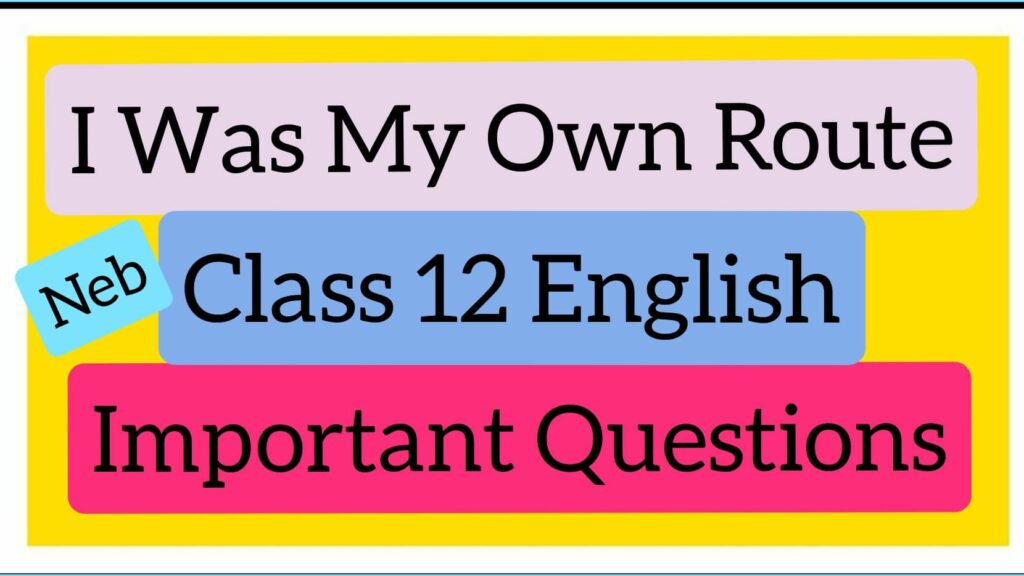What is the theme of the Poem?
Answer: I Was My Own Route is a poem by Julia de Burgos. The poem reflects the speaker’s journey to self-discovery and independence. The speaker declares that she is the one who determines her own path in life and will not be limited by societal expectations or norms. The theme of the poem is empowerment, self-reliance, and the importance of following one’s own path in life. The poem encourages the reader to be confident and take control of their own journey, regardless of the obstacles they may encounter.
a. Why did the speaker try to be the way men wanted her to be?
Answer: She didn’t have a choice, so she tried to be what men wanted her to be. She had to act according to the norms and values of male dominated society.
b. What do you understand by her feet ‘would not accept walking backwards’?
Answer: It means her firm resolution to move ahead towards her new life full of hope and light. She doesn’t like to follow patriarchal norms and values by walking backwards.
c. Who are the old guards? Why did they grow desperate?
Answer: The old guards mean followers of patriarchal norms and values. They grew desperate because of the speaker’s revolution against patriarchal norms and values.
d. How did the speaker have ‘a feeling of intimate liberation’?
Answer: The speaker had ‘a feeling of intimate liberation’ because she has separated herself from patriarchal norms and values.
e. Why did the speaker’s desire to follow men warp in her?
Answer: The speaker’s desire to follow men warped in her because she wanted to enjoy freedom like men.
Short Questions
a. What does the speaker mean when she says ‘she was playing a game of hide and seek with her being’?
Answer: When she says ‘she was playing a game of hide and seek with her being’, she means her life ruled by patriarchal society. Her life under a patriarchal ideology was akin to a game of hide and seek between nature and identity under male rule.
b. Why, in your view, was her back ripped by the old guards as she was advancing forward?
Answer: In my opinion, as she moved forward, her back was ripped open by the old guardian as the influence of patriarchal ideology first dragged her as an obstacle. Old Guardian, i. H. The traditionalists resisted their steps and put many obstacles in their way forward. They created obstacles in their path to stop their advance.
c. What, according to the speaker, did it feel like to be free?
Answer: According to the speaker, being free feels like a flower that grows freely anywhere on earth.
d. Why does the speaker prefer the present to the past?
Answer: The present is much better than the past, because speakers prefer the present to the past. Her life under her patriarchal ideology was no better where she lived without her own identity. Her existence is so beautiful and intimately liberating that she sees herself as a flower that can thrive anywhere on earth.
e. John Donne, in his poem “No Man is an Island”, says, “No man is an island entire of itself.” Would Burgos agree with Donne? Do you agree with Donne or Burgos?
Answer: No, Burgos does not agree with Donne. In her poetry, she advocates separation for survival and progress. Yes, I agree with John Donne and fully support his concept of social equality. He advocated the idea of social equality, where men and women appear equal and support each other for the development of society. But if you look into the poem “I Was My Route” by Julia de Burgos, you’ll find a spokeswoman against patriarchal norms and values. She moves for her identity in new ways and succeeds in life. The speaker introduced the concept of feminism, which lacks social equality. She does not want to be dependent on men and sees patriarchal norms and values as an obstacle to women’s identity and progress.

